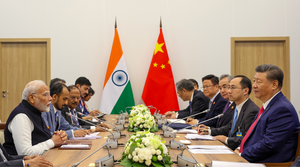Kathmandu, Sep 8 — Nepal’s Home Minister resigned on Monday following nationwide outrage and violent protests triggered by the government’s controversial decision to block unregistered social media platforms. The move comes after violent clashes in Kathmandu left at least eight people dead and hundreds injured.
The resignation was announced hours after security forces resorted to tear gas, water cannons, rubber bullets, and even aerial firing to disperse thousands of protesters in New Baneshwor, where demonstrators stormed the Federal Parliament premises. Authorities later imposed a curfew in key areas of the capital to restore order.
Sources said the Home Minister stepped down, taking “moral responsibility” for the deteriorating law and order situation. Opposition parties and civil society had been demanding his resignation, accusing him of mishandling the crisis and using excessive force against peaceful demonstrators, many of whom were students and young professionals.
The unrest was sparked by the government’s August 25 directive mandating all social media platforms to register under Nepalese law. When companies, including Facebook, YouTube, Instagram, WhatsApp, and X, failed to comply, the Nepal Telecommunications Authority blocked them on September 4. Critics argue the ban violates freedom of expression and disproportionately impacts the youth.
Prime Minister K.P. Sharma Oli, however, defended the directive, saying Nepal was not against social networks but against “lawlessness and arrogance.” Still, Oli accepted the Home Minister’s resignation to ease tensions and promised dialogue with protest groups.
Analysts warn that while the resignation may calm tempers temporarily, the larger issue of internet freedom and government overreach remains unresolved. With foreign investors already wary, and public anger mounting, Nepal’s leadership faces mounting pressure to review its digital governance strategy.










